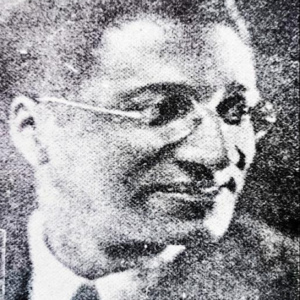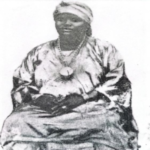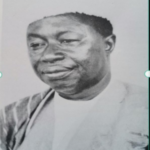
DR. ERNEST JENNER WRIGHT
Dr. Ernest Jenner Wright (1892 – December 29,1955) was one of the most distinguished members of the British Colonial Medical Service, and one of the foremost African physicians in medical research of that century. He was the first to draw attention to certain diseases due to malnutrition in Africans in general, and in expectant mothers and children in particular.
The son of a distinguished Sierra Leonean barrister, C. E. Wright, young Ernest was Christened Jenner after the discoverer of the smallpox vaccine. He had a boyhood ambition to be an engineer but his father decided against this and steered him towards medicine.
Jenner was educated at Ealing Grammar School, London and St. Francis Xavier College, Bruges, in Belgium. From Bruges, he entered St. Mary’s Hospital Medical School, London University. As a medical student he held the post of demonstrator of physics for a year. In 1914 he qualified as a member of the Royal College of Surgeons (M.R.C.S.), and as a licentiate of the Royal College of Physicians (L.R.C.P.), obtaining his Diploma in Tropical Medicine (D.T.M.) in Liverpool the same year. He was then appointed obstetrical assistant at Liverpool University. He later filled the post of resident medical officer, Ladywood Dispensary, Birmingham.
It was at this time that he decided to make his career in Sierra Leone. In 1916 he joined the Colonial Medical Service, where he quickly established himself as a doctor of ability and industry, and ultimately attained the status of specialist physician.
He was a protagonist against avitaminosis and a reputed dietitian, describing the importance of sulphur in foods long before the essential nature of this element in protein was discovered in America.
He was also the first to report the presence in the tropics of rickets, a metabolic disease usually associated with temperate climates, curable by cod liver oil and sunlight. Dr. Wright explained its presence in the tropical climate by the fact that mothers normally carried their young children on their backs elaborately wrapped up, thus preventing sunlight from acting on the skin. Most medical books wrongly state that the first description of tropical rickets was made in India, where it was recorded some years after Wright’s original paper. But in Henry H. Scott’s History of Tropical Medicine some of his discoveries have been recorded and acknowledged.

Another important aspect of his work was the inception and organisation of ante-natal, postnatal and infant welfare clinics in Freetown. Popularly known as ‘Pikin Daddy,’ he could best be remembered by many mothers for the ‘Health and Baby Week’ which he inaugurated and ran for several years, and it is fitting that his name should have been perpetuated in the ‘Under Five’ clinic at Race Course.
The Maternity Hospital and Jenner Wright were inseparable. With his Liverpool experience standing him in good stead, he supervised the work there, later handing over responsibility to his daughter, Dr. Sophie Wright (Mrs. Ramanankoto). On his retirement in 1949 he was appointed consulting physician to the Sierra Leone government. Thirteen years earlier he was honoured as a Member of the British Empire (M.B.E.), The first African doctor to be so honoured.
Wright’s interests were scholarly. He possessed the most complete collection of early West African coins in existence. His collection comprised the Gold Coast ‘ackey,’ half ackey, and a quarter ackey, dating back to the 1850s; a stamped-out dollar of Sierra Leone origin; a Macgregor Laird penny; the Sierra Leone Company 1896 one cent piece, having a lion with versatile tail on one side and a white hand shaking a black hand on the other. Except for the guinea of Charles II, he had the complete set of all coins minted for use in British West Africa.
He was also bibliophile and had one of the finest and most extensive libraries of early books on Sierra Leone. He researched deeply, and was an authority in the early history of Sierra Leone and the West African settlements. Among his collection he had unique specimens of works of mid-19th century Sierra Leoneans, such as J. A. B. Horton (q.v..), and the Rev. George Nicol, a Cambridge graduate of great literary merit.
Jenner Wright spent large sums of money on valuable books and rare objects of interest, building up not only a priceless library but a miniature museum at No.31, Howe Street, Freetown.
Added to his main interests of medicine, numismatics, and history, was his practical interest in the uses of electricity. He was the first individual in Freetown to install in his home a metal filament and, later, fluorescent electric lights, and he owned a generating plant long before electricity was publicly introduced in Sierra Leone.
Other aspects of technology also interested him. He was the only medical practitioner who possessed an electro-cardiograph in Sierra Leone, and also obtained an early tape recording machine, and experimented with radio receivers. Photography, too, was another hobby in which he was proficient, developing, printing, and enlarging his own negatives. Last but not least, he was the proud owner of one of the first cars in West Africa.
Wright lived a busy public life. He served as chairman and member of two of the Wages Boards of the Labor Department. He knew practically every African seaman whose home was in Sierra Leone for he had to examine each of them before embarkation. During both world wars he attended to sick sailors of all nationalities, and as first chairman of the Sierra Leone Society he was a great asset.
On the domestic side, he and his brother, the Honourable Claude Wright married two sisters. Charlotte, Jenner’s wife, was his constant companion and support throughout their 37 years of married life.
In spite of the fact that he was in many respects a pioneer in each of his posts, Dr. Wright was a man of retiring disposition, sensitive, gentle and full of kindness. His dedication to the welfare of his fellow men is impressive, and his whole life an expression of brotherly love. He died in 1955, at the age of 63.
DOMINIC OFORI


